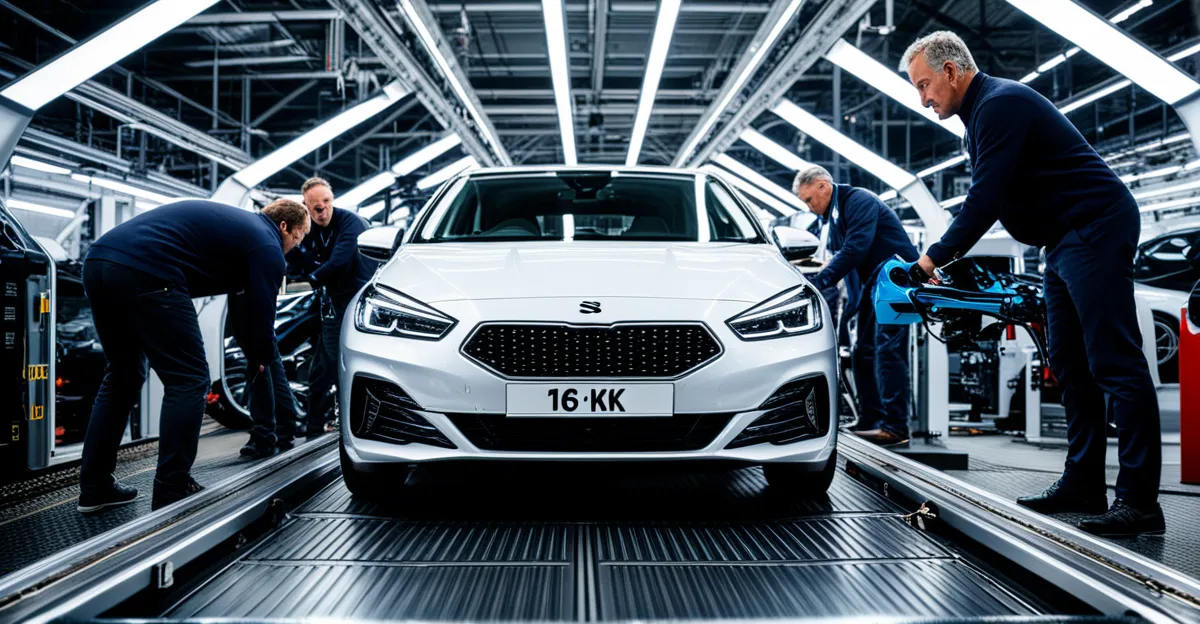Addressing Current Global Challenges Facing the UK Automotive Sector
The UK automotive industry faces significant hurdles shaped by an evolving global landscape. Among the most pressing challenges are global competition, Brexit’s ongoing effects, supply chain disruptions, and mounting sustainability pressures.
Firstly, global competition intensifies as emerging markets and established players alike vie for dominance. This rivalry presses UK manufacturers to maintain cost-efficiency while investing in cutting-edge technologies.
Have you seen this : What Challenges Does the UK Automotive Industry Face in 2024?
Secondly, the Brexit impact has altered trade dynamics and regulatory alignment. Changes in customs arrangements and increased paperwork complicate cross-border operations, raising costs and delaying shipments. These shifts affect the sector’s international competitiveness.
Thirdly, supply chain disruptions remain acute due to geopolitical tensions, fluctuations in demand, and shortages of raw materials like semiconductors. These disruptions hinder production schedules, inflating costs and risking deferred deliveries.
In parallel : What Are the Challenges Faced by the UK Automotive Industry Today?
Lastly, sustainability pressures compel the sector to adopt environmentally responsible practices. Regulatory frameworks increasingly demand lower emissions and greener production methods, creating urgency for transformation amid cost constraints.
Together, these factors necessitate strategic agility from UK automotive stakeholders to navigate economic and regulatory complexities while safeguarding global market presence.
Innovation Trends Transforming the Automotive Sector
The UK automotive industry is undergoing a significant transformation fueled by rapid automotive innovation. Central to this change is the widespread adoption of electric vehicles (EVs), which not only reduce the sector’s carbon footprint but also reshape manufacturing and infrastructure demands. With increased government emphasis on zero-emission targets, the shift toward EVs accelerates, pushing manufacturers to invest heavily in battery technologies and charging networks.
Simultaneously, artificial intelligence (AI) plays a pivotal role in both vehicle development and production efficiency. AI enhances design processes, predictive maintenance, and quality control, enabling smarter manufacturing lines and faster innovation cycles. Beyond factories, AI integrates into vehicles themselves, powering advanced driver assistance systems and safety features that redefine the driving experience.
Another key trend is digital transformation through the rise of connected vehicles. These vehicles communicate with each other and the surrounding infrastructure, creating a foundation for smarter traffic management and personalized mobility services. This connectivity promises to reduce congestion, enhance safety, and improve fuel efficiency.
Together, these trends highlight how the UK automotive sector embraces innovation to remain competitive amid evolving global challenges. Investing in EV technology, harnessing AI, and developing connected vehicle ecosystems are essential strategies shaping the future of automotive mobility.
Policy, Regulation, and Government Support
Navigating the UK automotive industry’s challenges requires close attention to evolving government policy and regulatory frameworks. Recent shifts in automotive regulation UK focus heavily on advancing green technologies and tightening emissions standards. This regulatory evolution compels manufacturers to adapt production processes and vehicle designs to comply with lower carbon output mandates.
Government action also plays a pivotal role by offering targeted R&D incentives that encourage investment in breakthrough technologies, such as advanced batteries and AI integration. These financial support measures aim to reduce innovation costs, helping the sector accelerate its transition toward sustainable mobility solutions.
Moreover, green investments drive market transformation by subsidizing infrastructure like EV charging networks and clean manufacturing facilities. These initiatives strengthen the industry’s ability to meet sustainability pressures while remaining economically viable.
Understanding and proactively engaging with these policies allows UK automotive stakeholders to optimize compliance and leverage funding opportunities. Such alignment is essential to sustaining competitiveness amid tightening environmental regulations and shifting global market expectations.






